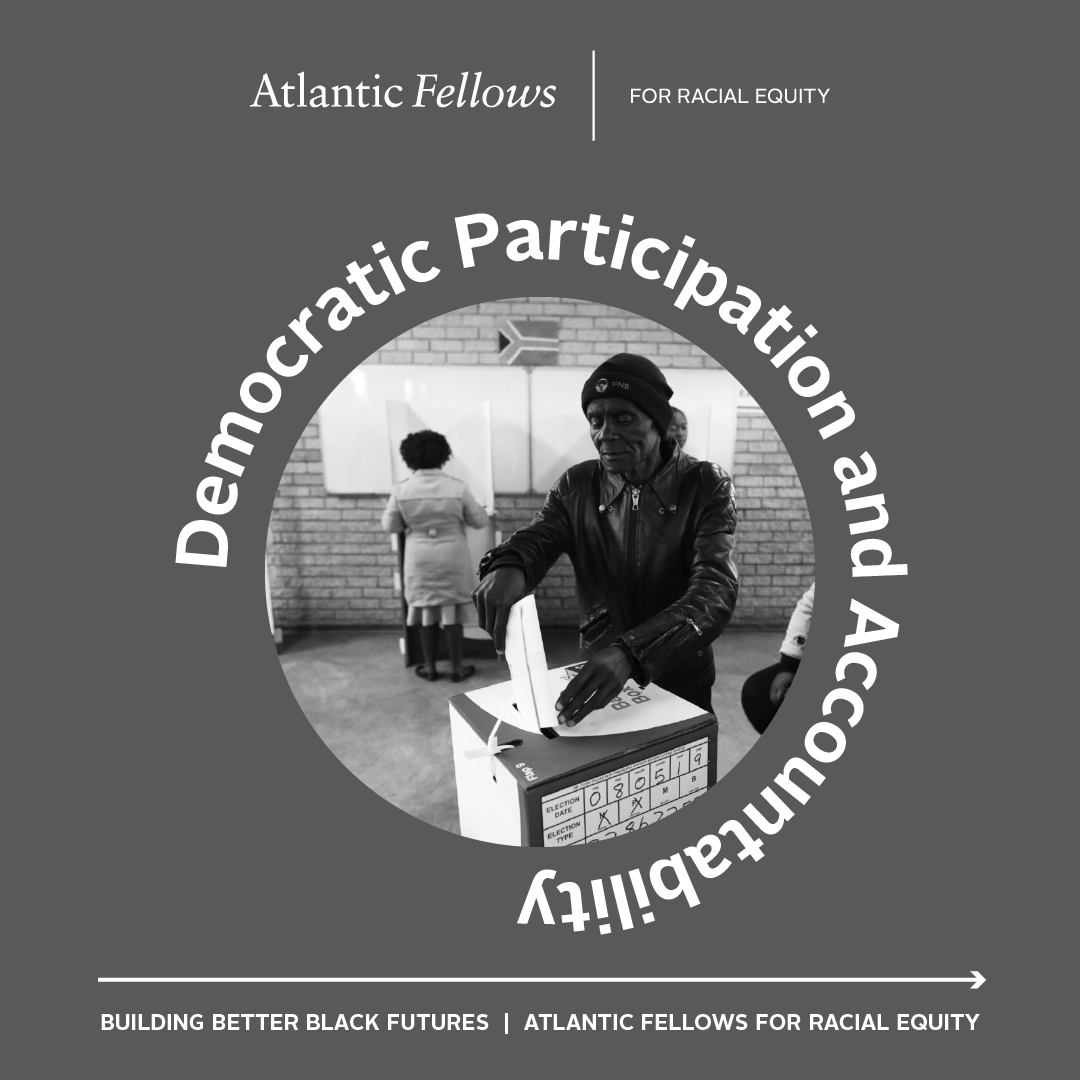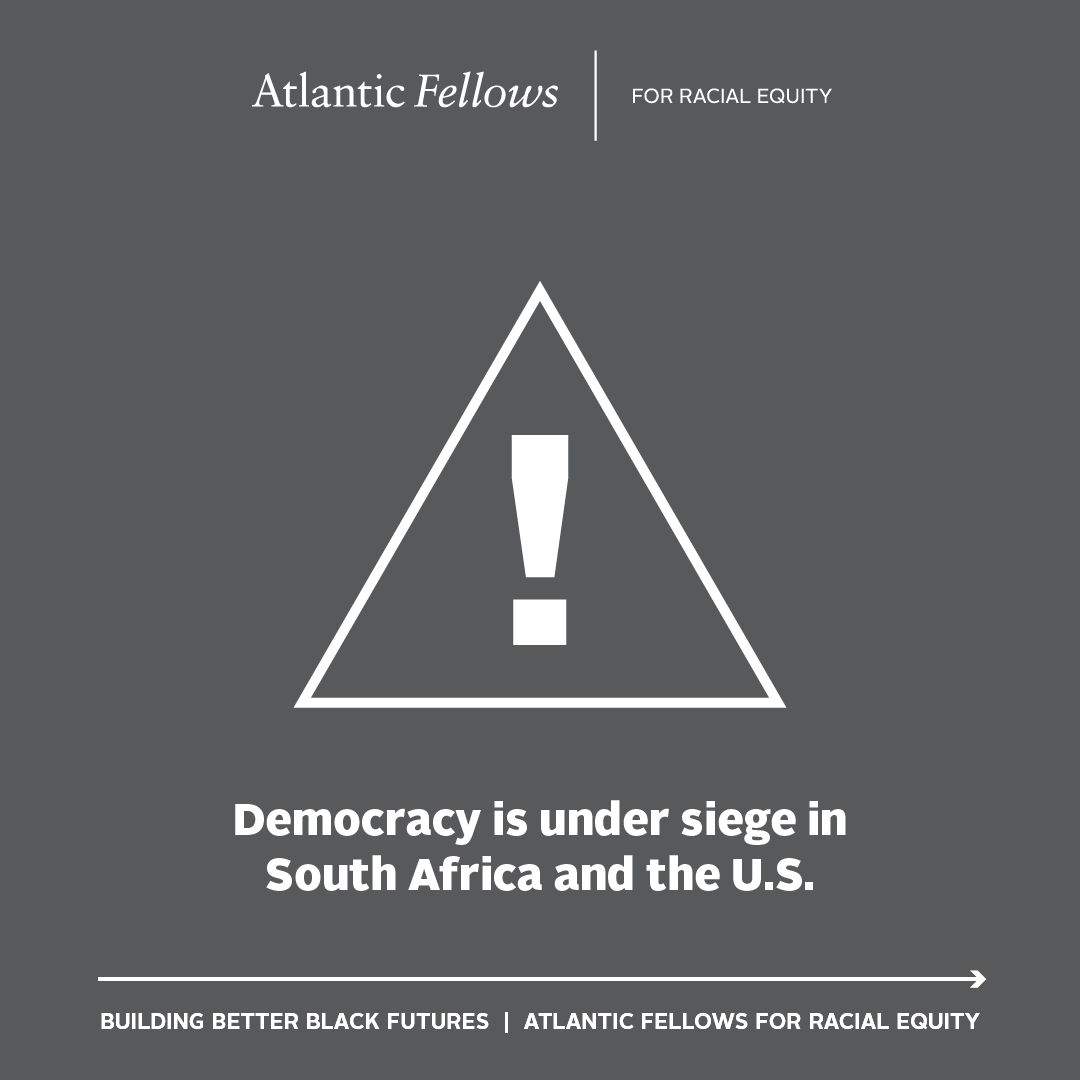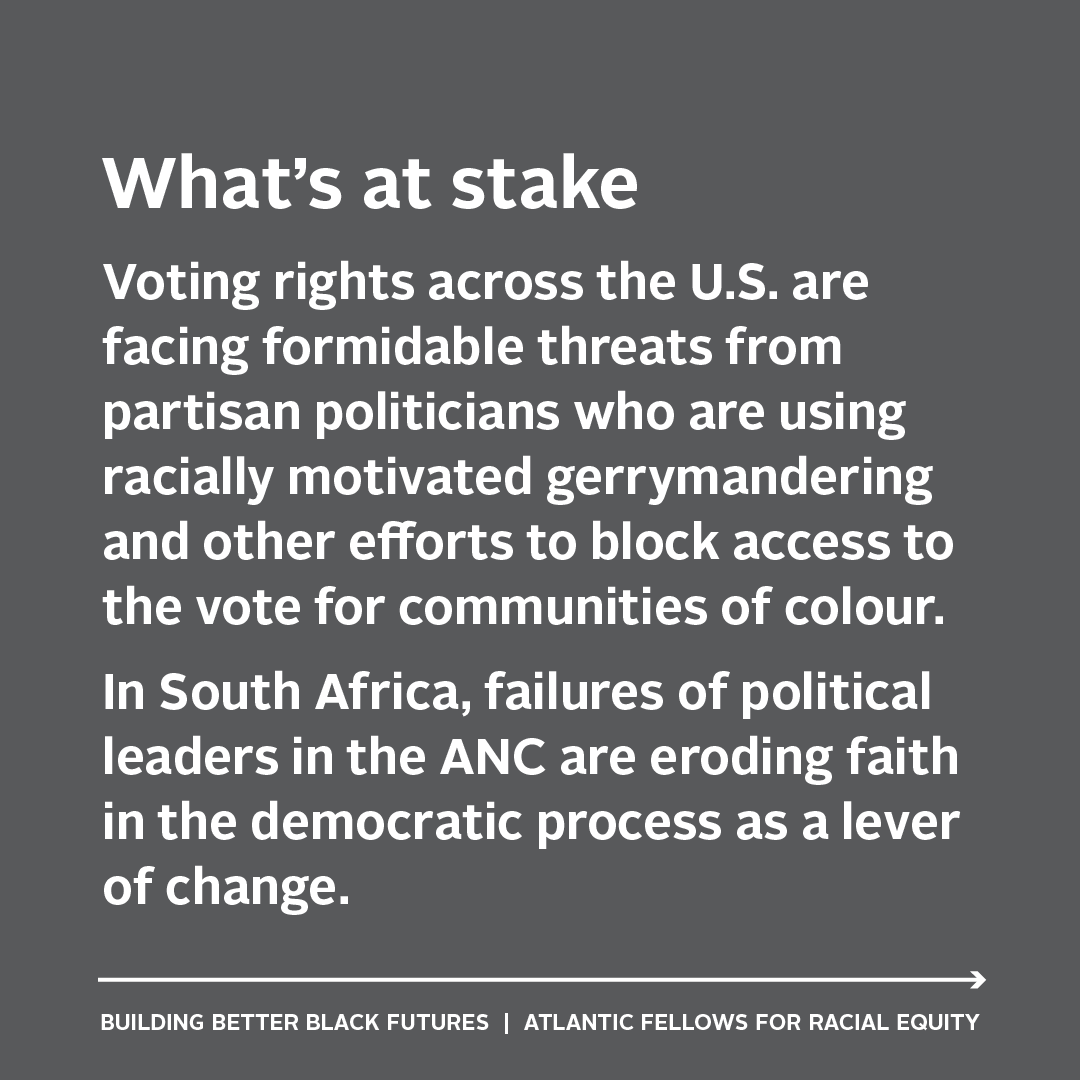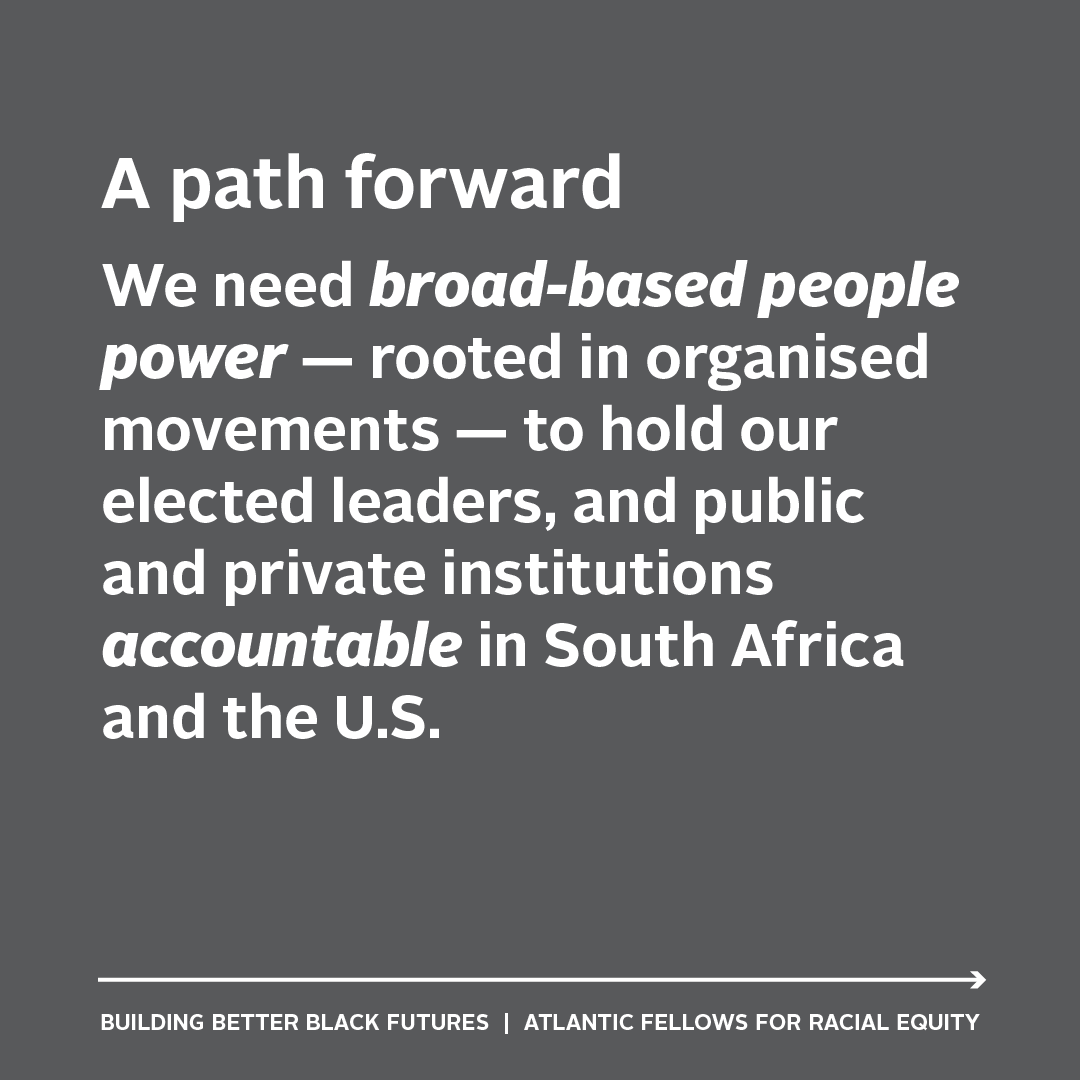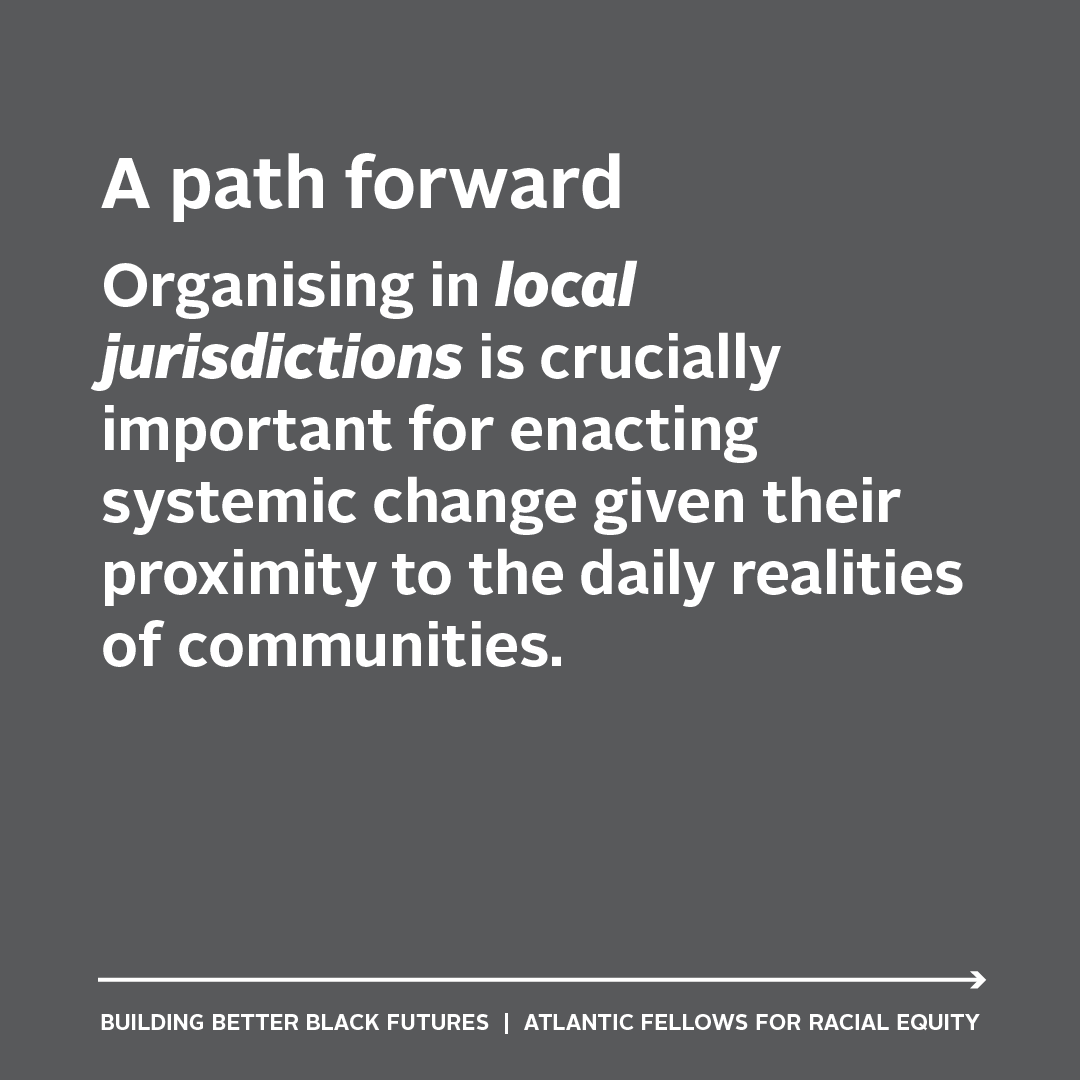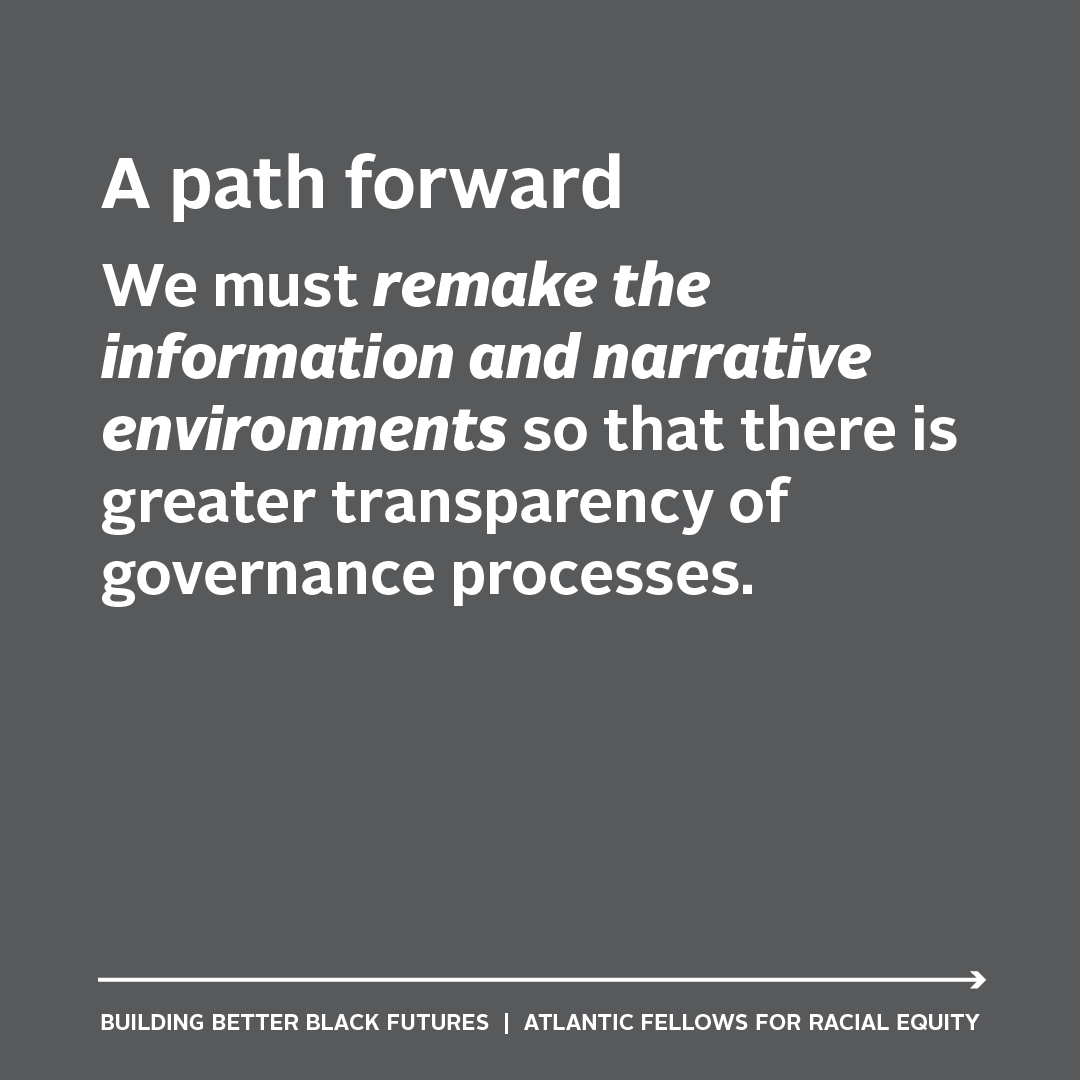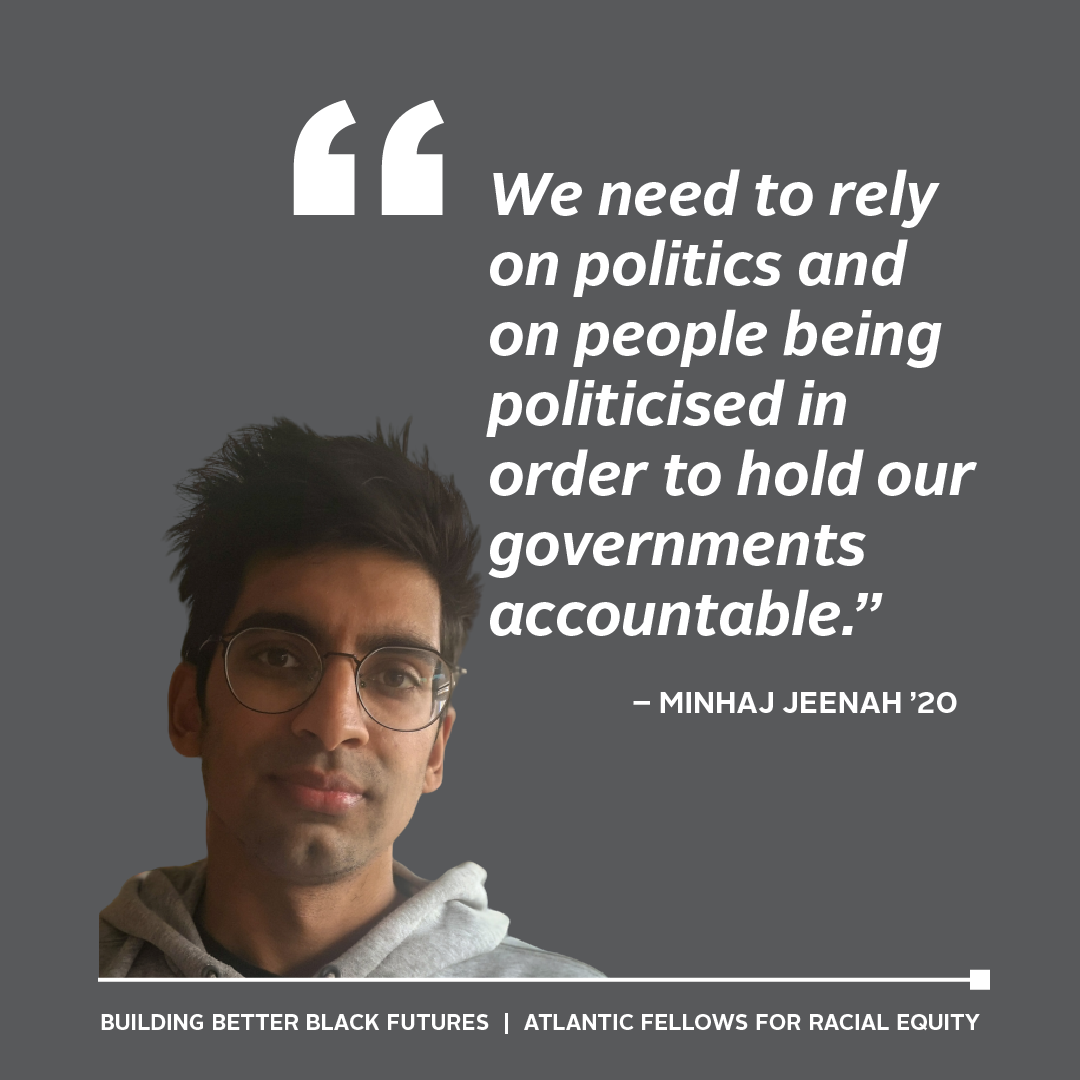The Fight for Democratic Accountability
From the very beginning of democracy in the U.S., politicians have tried to limit voting access to wealthy, white men. In recent years, these efforts have included partisan, racially motivated gerrymandering of districts, and efforts to limit access to polling sites in areas densely populated by Black communities and people of colour. Earlier this year, Congress failed to pass the John Lewis Voting Rights Act, which would have restored federal oversight for states with such histories of voter suppression.
In South Africa, leadership failures of the African National Congress (ANC) combined with documented cases of state capture and political corruption have undermined public faith in the democratic process. This notably led to the lowest voter turnout since 1994 in last November’s municipal elections, pandemic notwithstanding.
To address these threats to the practice and ideals of democratic governance, and to ensure that public officials and institutions, like the police, are accountable to serving the needs of those most impacted by injustice, we need to strengthen community organising at the local level.
Axolile Notywala’20, a community organiser from Cape Town, and Elana Needle’19, whose advocacy work focuses on voting rights and census representation in the U.S., both believe that local jurisdictions are important contexts for people-centred organising to blossom, in part because local governments have the most immediate impact on people’s lives. While this has long been a truism in community organising landscape, the increasing power of social media has shifted attention away from what local organisation and action can achieve to focus instead on other levels of government.
Axolile observes how municipal laws are essentially criminalising poverty, sometimes with deadly consequences, as in the recent killing of Dumisani Joxo in Cape Town. “That law enforcement officer was acting because of a [municipal] bylaw that says, as a homeless person, you’re not supposed to [use public space in certain ways],” he says, in this case, build a fire to make breakfast.
A crucial step toward strengthening democratic accountability of public and private institutions is to increase transparency in governance processes. Elana notes how inconsistent access to police budgets across the U.S. make it challenging to identify levers of change. Axolile notes similar transparency issues in budget review processes for South African municipalities.
“At the time for public critique and comment on budget proposals, the City of Cape Town posts one copy of the budget—a highly technical 500-page document—in a public library. It's all in English. People are given probably 27 days to comment. Meanwhile, the dominant local language for up to 80 percent of people is not English. So how do we expect people to participate?” he asks.
In addition to greater transparency, Elana also calls for people-centred organising to counter the spread of divisive narratives that are driving a fundamentally anti-democratic agenda. The right-wing anti-critical race theory effort in the US, she notes, is spreading harmful narratives about people of colour and other marginalised people to build political power.
“We've already seen the impact of the anti-critical race theory narrative in the 2021 election cycle, and we are certain that critical race theory will be the boogeyman in the 2022 and 2024 cycles. This is going to be a long-term fight,” she says. Projects like H.E.A.L Together from Race Forward aim to build people and narrative power to “counter the anti-CRT movement while advancing a vision of a just, multiracial democracy that works for everyone.”
Similarly, in South Africa, sustained and growing social and economic inequality creates the conditions for political manipulation and exploitation. “There is a huge sector of disenfranchised people in South Africa, unemployed people, women, and others who can be organised," says Minhaj Jeenah’20, who leads the team at MyVoteCounts. "They are going to be attracted by right-wing politics if something is not done now."
Axolile believes new spaces are needed for conversation that is accessible to majority of South Africans. His work through Movement4Care seeks to organise people and communities across Cape Town to build a progressive and transformative municipal politics centred in action, care and equity. By building spaces that are collectively owned and constructed, he hopes to support people to build a sense of shared fate across their differences and create a politically formidable movement.
Learn more:
My Vote Counts; H.E.A.L Together from Race Forward; The New Georgia Project; Abahlali base Mjondolo; John Lewis Voting Rights Act
Lead Image by Mike Hutchins/Reuters
This piece is part of our 2022 Policy Slate for Racially Equitable Futures. Click here to visit the summary page and explore other issues.


